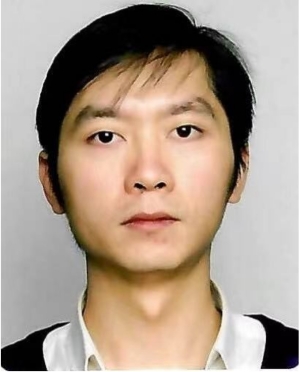
报告题目:Mixed Time- and Event-Triggered Distributed Observer for LTI Systems: Non-Pathological Sampling and Inter-event Dynamics (线性时不变系统的混合时间事件驱动观测器:非病态采样及事件间动力学)
报告人:舒展,阿尔伯塔大学,教授
报告时间:2024年11月7日(周四)10:00
报告地点:腾讯会议:474-500-070
报告对象:感兴趣的教师、研究生、本科生
主办单位:电气与信息工程学院
报告人简介:
 Zhan Shu received his B.Eng. degree in Automation from Huazhong University of Science and Technology in 2003, and his PhD degree in Control Engineering from The University of Hong Kong in 2008. He received the award for Outstanding Research Postgraduate Student of the University of Hong Kong for his doctoral research. He was a Post-Doctoral Fellow at the Hamilton Institute, National University of Ireland, Maynooth, from 2009 to 2011, and a Lecturer in the Faculty of Engineering and Physical Sciences, the University of Southampton, from 2011 to 2019. Since 2020, he has been a faculty member at the Department of Electrical and Computer Engineering, University of Alberta, where he is currently a professor. He is a Senior Member of IEEE, a Member of IET, and an invited reviewer of the Mathematical Review of the American Mathematical Society. He is an Associate Editor for several journals and conferences, e.g., IEEE Transactions on Automatic Control and the IEEE Control Systems Society Conference Editorial Board.
Zhan Shu received his B.Eng. degree in Automation from Huazhong University of Science and Technology in 2003, and his PhD degree in Control Engineering from The University of Hong Kong in 2008. He received the award for Outstanding Research Postgraduate Student of the University of Hong Kong for his doctoral research. He was a Post-Doctoral Fellow at the Hamilton Institute, National University of Ireland, Maynooth, from 2009 to 2011, and a Lecturer in the Faculty of Engineering and Physical Sciences, the University of Southampton, from 2011 to 2019. Since 2020, he has been a faculty member at the Department of Electrical and Computer Engineering, University of Alberta, where he is currently a professor. He is a Senior Member of IEEE, a Member of IET, and an invited reviewer of the Mathematical Review of the American Mathematical Society. He is an Associate Editor for several journals and conferences, e.g., IEEE Transactions on Automatic Control and the IEEE Control Systems Society Conference Editorial Board.
报告内容:
This talk introduces a distributed observer for linear time-invariant systems, incorporating time-triggered periodic observations and event-triggered communication to estimate the state of the leader. We demonstrate the critical role of the sampling period in achieving desirable observers and establish a necessary and sufficient condition for all feasible sampling periods that ensure convergent error dynamics. We also characterize intricate relationships among sampling periods, system topologies, and matrices.
We design an event-triggering mechanism based on locally sampled data to regulate communication among agents. Convergence of estimation errors is proven under this mechanism for a class of positive and convergent triggering functions, which includes the commonly used exponential function as a special case. The proposed mixed time- and event-triggered architecture naturally avoids Zeno behavior by updating the system at discrete instants.
Furthermore, we analytically characterize the relationship among sampling, event triggering, and inter-event behavior when the triggering function is bounded by exponential functions. Finally, we provide several examples to illustrate the effectiveness and merits of the theoretical results.
欢迎全校师生踊跃参加!